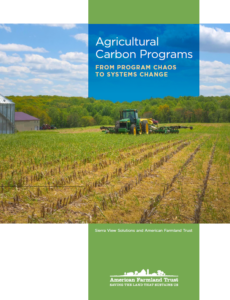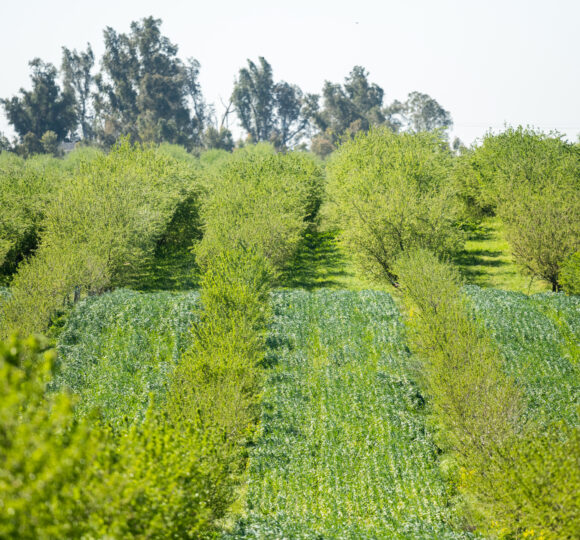In this white paper, American Farmland Trust (AFT) and Sierra View Solutions (SVS) analyze the current state of agricultural carbon programs, explore four main reasons why farmer participation may be low, and recommend 12 strategic changes that would help these programs, which are mainly focused on cropland, to succeed. The most critical barriers AFT and SVS identify are the economics of the programs, concerns about additionality, requirements for permanence, and data and technology barriers for agriculture.
This analysis may be used to help farm trade associations, environmental groups, carbon program developers, and policymakers better understand some of the specific barriers to enrollment that agriculture faces and the changes that could lead to widespread adoption of farm conservation practices. If implemented, the recommendations may lead to systemic change that will transform agriculture from a source of greenhouse gas emissions to a sink. They may also provide the public and producers with the assurance that the emerging agricultural carbon programs are a credible and cost-effective approach to climate mitigation and adaptation.






